Overview
Samriddhi College in Lokanthali, Bhaktapur is a Tribhuvan University–affiliated institution offering Bachelor’s programs in BSc CSIT, BCA, BBS, BSW, and BPsych. This college serves Nepal and global learners seeking reliable information about undergraduate study in the Kathmandu Valley.
Here you will find clear details on programs, seats, admission, eligibility, scholarships, facilities, internships, and student life.
Introduction
Established in 2013, Samriddhi College provides undergraduate education in information technology, management, social work, and psychology. The college follows Tribhuvan University (TU) curricula and academic policies. Its location in Lokanthali, Bhaktapur places it within easy reach of Kathmandu, Lalitpur, and the broader Valley.
Teaching focuses on practical coursework, projects, fieldwork, and industry exposure. Students access a library, computer labs, seminar spaces, and counseling services. Career guidance, internships, and field placements support progression to employment or postgraduate study. The college welcomes applicants from Nepal and abroad who meet TU eligibility rules.
Quick Highlights
-
Affiliation: Tribhuvan University (TU)
-
Location: Lokanthali, Bhaktapur, Kathmandu Valley, Nepal
-
Established: 2013
-
Programs and Seats:
-
BSc CSIT — 48 seats
-
BCA — 35 seats
-
BBS — 60 seats
-
BSW — 60 seats
-
BPsych — intake as per college communication
-
-
Academic Model: TU curricula with practical labs, projects, fieldwork, and internships
-
Student Support: Academic counseling, career guidance, interview support, placement assistance
-
Facilities: Library, computer labs, classrooms set for interactive learning, seminar spaces
-
Scholarships: Merit- and performance-based awards; BSW 100% scholarships (top 10) as stated; graded tuition/registration waivers in the first year per policy
-
Important Notes on Fees: TU registration/exam fees, internal exam fees, TU service charges, and expenses for internships/educational tours/field visits are borne by students
Academic Programs Offered
BSc Computer Science and Information Technology (BSc CSIT) — 48 Seats
Overview
A four-year, eight-semester program under TU’s Institute of Science and Technology (IoST). The degree builds knowledge in computing theory and applied IT with strong programming, systems, and project work.
Curriculum focus
-
Programming (C, C++, Java, Python)
-
Data structures and algorithms
-
Database systems
-
Operating systems
-
Computer networks
-
Web and mobile development
-
Mathematics for computing
-
Software engineering
-
Electives such as AI, data science, machine learning, and cybersecurity
-
Projects and labs integrated across semesters
Graduate pathways
Software engineering, web/mobile development, data analysis, database administration, networking, cybersecurity, cloud roles, IT officer positions, and research support. Graduates also continue to Master’s programs (CS/IT/data-related fields) in Nepal and abroad.
Bachelor of Computer Application (BCA) — 35 Seats
Overview
A four-year, eight-semester TU program focused on computer applications, software development, and applied IT.
Credit structure
-
Total: ~126 credit hours
-
Core computer application courses: ~71 credits
-
Electives: ~12 credits
-
Mathematics and statistics: ~9 credits
-
Language courses: ~6 credits
-
Projects and internships: ~13 credits (with tutorials and labs)
Graduate pathways
Application/software development, web technologies, database administration, IT analysis, QA/testing, and entry-level system support. Graduates commonly pursue MCA, MIT, MSc IT/CS, or MBA (IT).
Bachelor of Business Studies (BBS) — 60 Seats
Overview
A four-year TU program with yearly examinations that develops core understanding in business and management.
Curriculum focus
-
Accounting and finance
-
Marketing and sales management
-
Economics and quantitative methods
-
Human resource management
-
Business communication and organizational behavior
-
Projects and presentations as per campus plan
Graduate pathways
General management, accounting support, banking/financial services, sales and marketing roles, operations, and administration. Many graduates sit for competitive exams or pursue MBA/other professional certifications.
Bachelor of Social Work (BSW) — 60 Seats
Overview
TU-affiliated program covering social work theory and practice with a strong fieldwork component. Psychology and social science foundations are included to support work in communities and organizations.
Fieldwork
-
Minimum 12 hours per week of practical fieldwork
-
Evaluation through midterm assessments, assignments, attendance, field skills, and reflection
-
Camps, guest sessions, field visits, and life-skills training
-
Opportunities with partner NGOs and INGOs
Graduate pathways
Community development, counseling support, program coordination, research assistance, school/hospital roles, rehabilitation services, and positions within government and non-government organizations.
Bachelor of Psychology (BPsych)
An undergraduate pathway in psychology (as communicated by the college) focusing on human behavior, mental processes, and applied settings. The program supports interest in counseling, education, organizational behavior, and research fundamentals.
Learning experience
-
Classroom study in general, counseling, social, and abnormal psychology
-
Research methods and psychological testing
-
Field exposure through internships and placements in relevant organizations
-
Workshops, guest sessions, and student club engagement
Graduate pathways
Entry roles in mental health support, education, HR/organizational roles, social services, or research assistance. Further study is common for clinical or specialized practice.
Admission Process
Samriddhi College follows TU rules for eligibility and selection. Applicants should confirm current requirements each admission cycle and keep copies of official documents ready.
Documents (typical for all programs)
-
SEE: Provisional certificate, grade sheet, character certificate
-
+2: Character certificate, transcript/grade sheets (Grade 11 and 12), migration certificate
-
Citizenship or valid ID
-
Recent passport-sized photos (as specified)
-
For entrance-based programs: admit card and result sheet
Program-wise eligibility and selection
BSc CSIT (TU IoST)
-
10+2 Science or equivalent with Physics and Mathematics (100 marks each)
-
Minimum overall grade per TU (C in all subjects or per current IoST rule)
-
Entrance exam by IoST (compulsory); two hours; objective questions across Mathematics (25), Physics (25), Chemistry (25), English (15), Computer-related (10); passing mark: 35/100
-
Selection based on IoST merit and college procedures
BCA (TU FoHSS)
-
Minimum D grade in each subject of Grades 11–12 with CGPA ≥ 1.8, or second division in 10+2/equivalent (any discipline)
-
Provisional applicants awaiting Grade 12 results may apply; final documents must be submitted within the college timeline
-
Entrance exam (two hours; English, Mathematics, General Knowledge; 100 MCQs; pass mark 35) as per college/university notice
BBS (TU FoM)
-
+2/Intermediate/PCL or equivalent (any recognized board)
-
At least D+ in each subject or minimum 45% where percentage applies
-
No TU entrance exam for BBS; selection by academic record and college guidelines; interview may apply
BSW (TU)
-
+2/Intermediate/PCL or equivalent from recognized boards
-
D+ in each subject or minimum 45% where percentage applies
-
No TU entrance exam for BSW; short interview conducted by the college
BPsych
-
+2/Intermediate/PCL or equivalent with at least 45% and D+ in all subjects (as communicated)
-
Interview may apply; entrance exam not typically required per college communication
Teaching Faculty and Learning Methodology
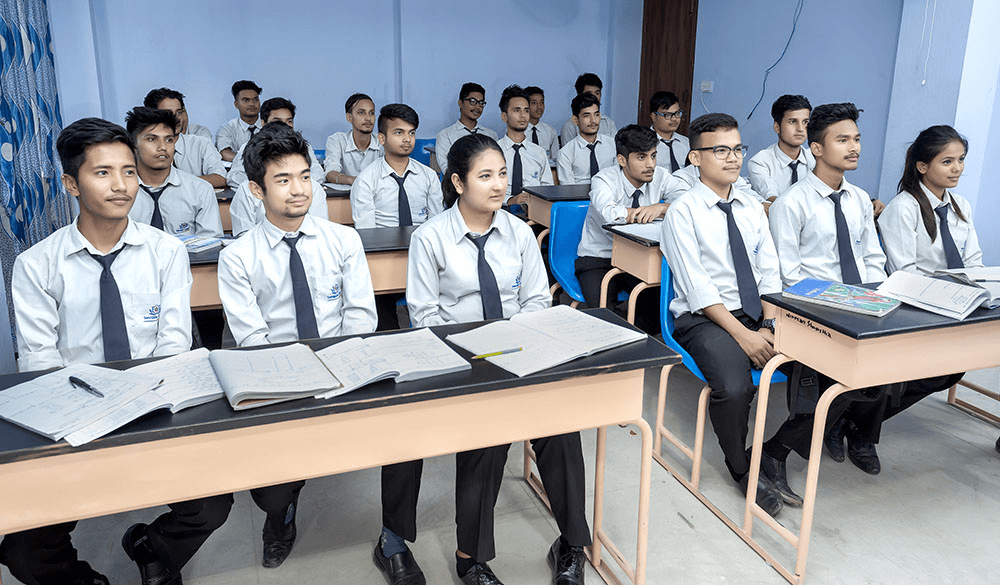
-
Faculty team: TU-qualified lecturers and instructors with subject expertise. Guest speakers from academia, industry, and social sectors conduct seminars and workshops.
-
Teaching approach: Interactive classes, labs, tutorials, case discussions, project work, field visits, and research assignments where relevant.
-
Assessment: Combination of internal evaluation (assignments, class tests, practicals, presentations, attendance) and TU final exams.
-
Advising and counseling: Academic counseling helps students select courses, plan study loads, and align goals. Dedicated staff assist with personal and career questions.
Infrastructure and Learning Facilities
-
Library: Collection of books, journals, magazines, and reference materials. Reading areas support individual and group study.
-
Computer Labs: At least two labs with lab sessions scheduled for programming, networking, database, and application courses.
-
Classrooms and seminar spaces: Set up for interactive teaching, presentations, and events.
-
Connectivity: Campus internet access supports research and coursework.
-
Student services: Counseling, academic guidance, placement support, and office services.
-
General amenities: Cafeteria and common areas; transport options vary by route and season.
Student Life and Campus Experience
-
Daily schedule: Programs run in morning or daytime slots based on program and semester plans. For example, BSW and BPsych classes often run approximately 6:30 AM–11:00 AM on teaching days, with field placement on designated days.
-
Clubs and communities: Student-led groups for IT skills, culture, sports, psychology, entrepreneurship, alumni networking, and social service.
-
Workshops and events: Coding practice, mock interviews, report writing, presentation skills, public speaking, and research-focused sessions.
-
Health and well-being: Counseling services and supportive staff help students manage study pressures and transitions.
Extracurricular Activities (ECA)
-
Academic enrichment: Hackathons, coding meets, tech talks, seminars on current tools and frameworks, case competitions, and research showcases.
-
Social impact: Community outreach through social work placements, neighborhood/rural/urban camps, and partnerships with NGOs/INGOs.
-
Sports and culture: Sports meets and cultural functions that promote teamwork and campus engagement.
-
Leadership: Club leadership roles, event coordination, and peer mentoring.
Scholarships and Financial Support
Merit-based scholarships (first year as per the college policy)
-
A+ (≥90%): 100% registration + 100% tuition
-
A (≥80%): 75% registration + 50% tuition
-
B+ (≥70%): 50% registration + 25% tuition
-
B (≥60%): 50% registration + 10% tuition
Program-specific notes
-
BSW: Up to 100% scholarships for 10 students (as announced).
-
Performance continuation: From second year onward, awards follow merit/performance rules.
Financial reminders
-
TU registration and examination fees are as per TU rules and not included in the college’s base fee.
-
Internal examination fee: NPR 700 per term (charged prior to exams).
-
TU service charges apply.
-
Students cover expenses for internships, educational tours, field visits, and similar activities.
How to apply for scholarships
-
Submit academic documents (SEE, +2 transcripts), recommendation letters where asked, and complete any interview or additional requirement stated by the college.
-
Need-based options and reserved quotas may be available according to policy and seats.
Achievements and Institutional Milestones
-
2013: Establishment in Lokanthali, Bhaktapur with TU affiliation.
-
Program growth: Expansion to BSc CSIT, BCA, BBS, BSW, and BPsych as communicated by the college.
-
Industry exposure: Regular guest sessions and workshops by national and international practitioners in computing and social sectors.
-
Field partnerships: Placements with NGOs/INGOs and organizations for BSW and psychology-related fieldwork and projects.
-
Student development: Ongoing club activities, seminars, and skill-based short courses (e.g., presentation skills, report writing, seminars, public speaking).
Note: For audited figures such as placement counts, external grants, or rankings, consult official college notices or TU records for the current year.
Why Choose This Institution?
-
TU Affiliation and Recognized Curricula: All listed programs follow TU frameworks and examination systems.
-
Clear Program Pathways: Distinct academic routes in IT (BSc CSIT, BCA), business (BBS), social work (BSW), and psychology (BPsych).
-
Practical Learning: Labs, projects, tutorials, and field exposure aligned with program goals.
-
Advising and Counseling: Guided academic planning, application support, and career counseling.
-
Scholarship Access: First-year waivers based on grades, with performance-based continuation in later years.
-
Placement Assistance: Internship placement help and career services that connect students to employers and field organizations.
-
Location Advantage: Bhaktapur setting with access to the broader Kathmandu Valley.
Conclusion
Samriddhi College offers TU-affiliated undergraduate routes across IT, business, social work, and psychology with a focus on practical learning, student support, and field engagement. Seats, eligibility rules, and selection steps are set by TU and the college. Applicants should prepare documents early, track entrance timelines where applicable, and review scholarship policies for the current intake. With library access, computer labs, counseling, and active student groups, the campus experience supports both study and skill growth for learners from Nepal and abroad.
Contact Samriddhi College's administrative office for detailed information on the course, admissions, location, fees, scholarships, facilities, counseling or eligibility.


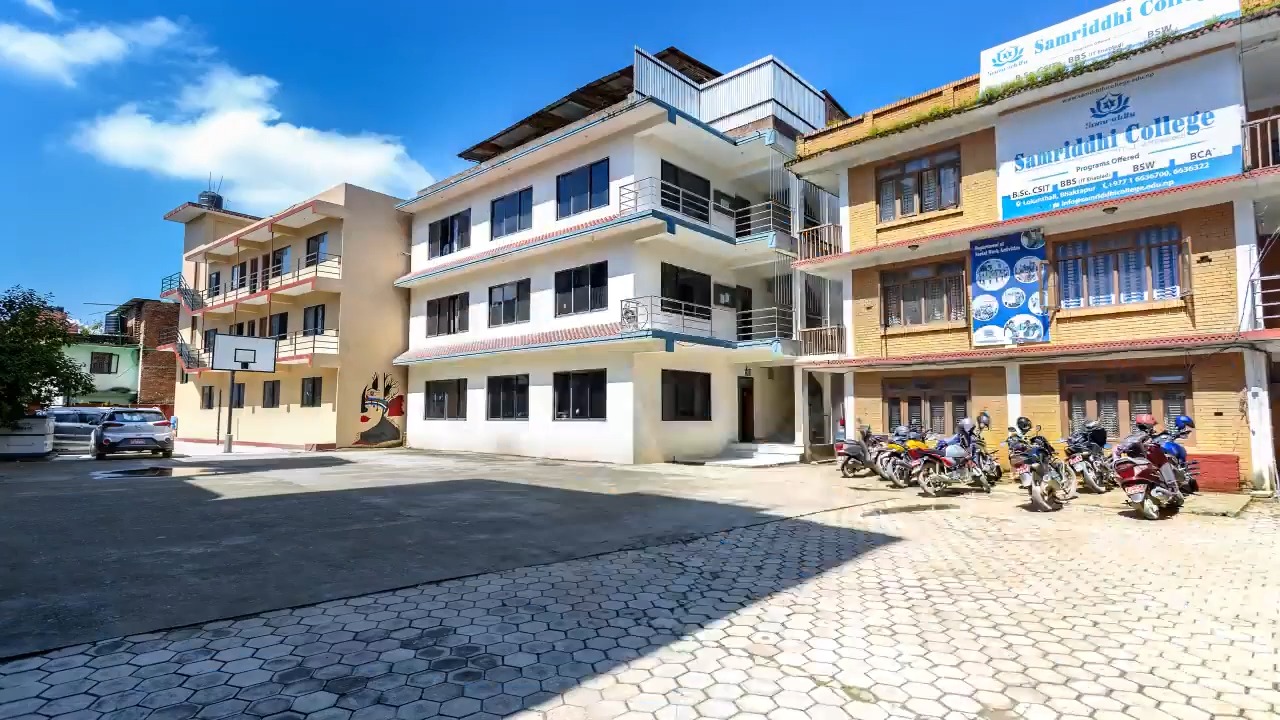


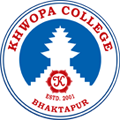
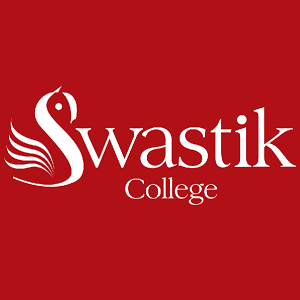
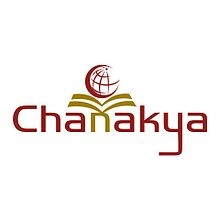
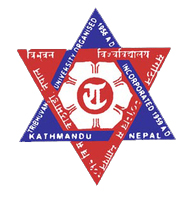
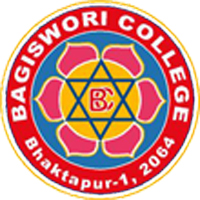
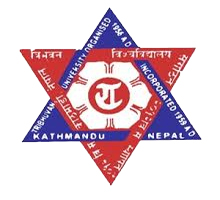










You need to login to comment.